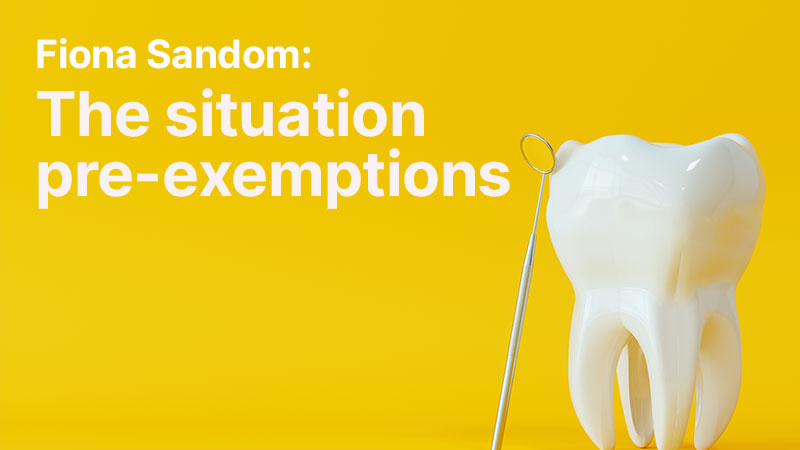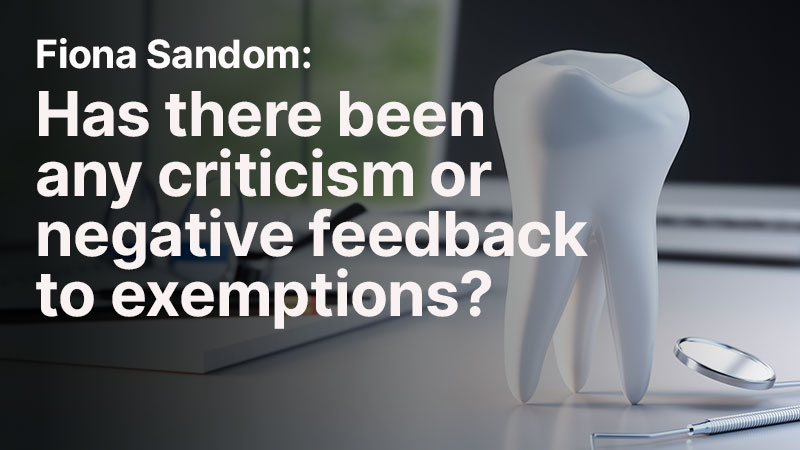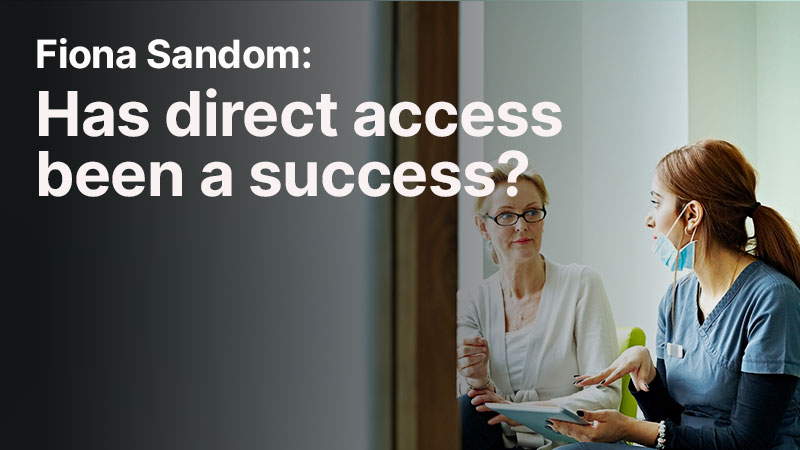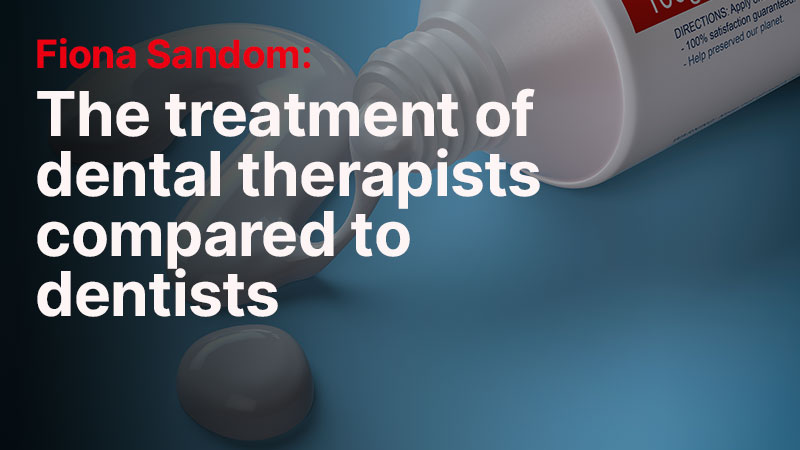The reason we're speaking now is there's been a new announcement with regards to exemptions.
Can you explain that in as simple terms as as possible, please?
Uh, yes, so basically, um.
We have different mechanisms by which we can supply and administer medicines.
Because we're not doctors or dentists, we come under the non-medical prescribing.
And within non-medical prescribing, there are then two sections.
Independent and supplementary prescribing, or we have supply and administration.
So because we want to supply and administer mainly local anaesthetic and fluoride varnish,
those are the, the key, key ones that are fundamental to our practise.
We want to be able to go, yes, Mrs. Jones, you need some local anaesthetic,
I'm going to give you some local anaesthetic, so we're supplying it,
and then we're going to administer it.
If we went down prescribing, so either independent or supplemental,
there has to be a dispensing process.
So we don't want to dispense it, we don't want to write a prescription and send them to,
to the chemist. We want to be able to do it there and then.
So out of those, out of that supply and administer, there are then 3 mechanisms.
One is a patient specific direction which we've had all along,
which is basically a prescription for the dentist.
The other one is a patient group direction, which we've managed to um be able to use since
about I would say 2015, it was 2014, 2015, it was quite soon after direct access
um and you know that that was a really good response except that.
Patient group directives or PGDs are really meant for secondary care.
They're not meant, well, they're meant for NHS organisations, so you know,
for us in primary care, where we're not actually even contractors to the NHS we're
subcontractors, they've been very difficult to get hold of.
Um, and then of course a patient group direction is only for certain groups of
patients, so you have inclusion criteria and exclusion criteria.
And if your patient doesn't fall into the inclusion, then you can only,
you can't use that medicine on them, so it limits the number of patients that we can have.
And again, the third one, the final one is exemptions, by which,
as a profession, once we've had education and training, we are exempt from needing.
Um, a PGD or a PSD to supply and administer the listed medicines to our patients.
So it basically just gives us the ability to use the medicines we need to use on the on that
the patients that we see fit to use.
Fiona Sandom: Exemptions
16 June 2025
Dental therapist, dental educator and past president of the BADT, Fiona Sandom, discusses a recent announcement regarding exemptions to supply and administer medications.




